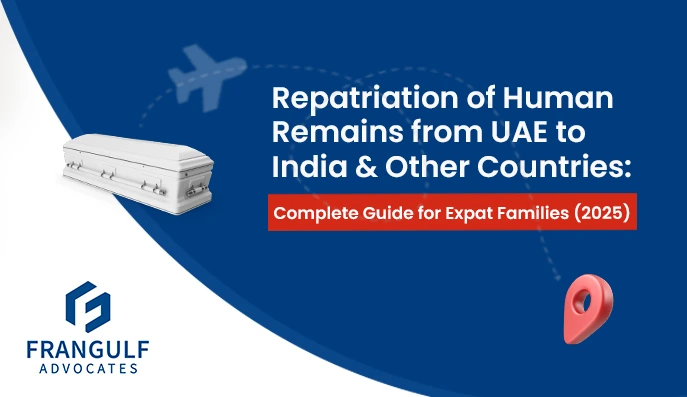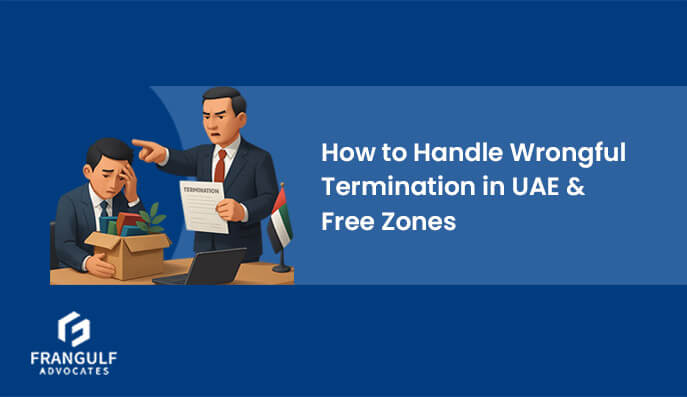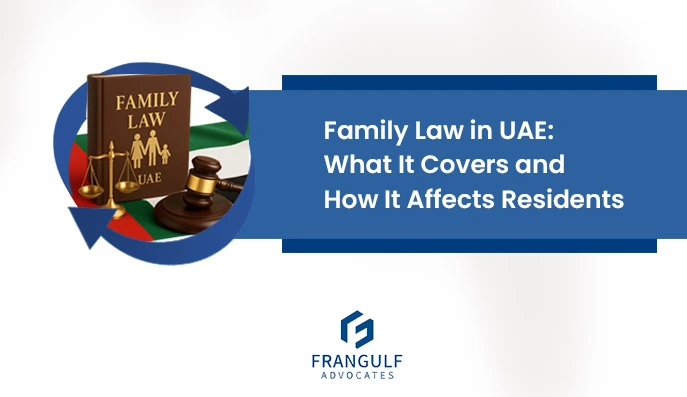Repatriation of Human Remains from UAE: Guide for All Expatriates

The United Arab Emirates (UAE) is home to over 200 nationalities, with expatriates making up approximately 90% of the population. Among them, around 28% are Indians and 12% are Pakistanis. With such a diverse international population, procedures for the repatriation of human remains from the UAE are critical in unfortunate times of loss.
Death of an Expatriate in the UAE
The loss of a cherished one is invariably challenging, and the situation is further complicated when it takes place in a foreign country. In the event of an expatriate’s death in the UAE, particularly in cities such as Dubai, Abu Dhabi, or Sharjah, the family is tasked with organizing the return of the deceased’s remains to their home nation. This undertaking necessitates legal documentation, collaboration with multiple governmental agencies, and associated financial expenses.
This guide provides emotional, logistical, and legal support for Indian nationals and other expatriate families.
What is Repatriation of Human Remains?
Repatriation is the process of transporting a deceased person back to their home country or country of origin. This complex process requires legal documentation, coordination with consulates, embalming, and airline approvals. It provides closure and respects religious and cultural traditions.
Initial Steps After the Death of an Expat in the UAE
- Notify the police and hospital
- Obtain a medical or forensic report
- The police will certify the death
- Inform the deceased’s sponsor or employer
- Begin coordination with the embassy/consulate
General Repatriation Process in the UAE
Regardless of nationality, the process of repatriating a dead body from the UAE typically includes:
- Obtaining a forensic report (If the death occurs outside a hospital)
- Potential autopsy or toxicology report (Depending on the cause of death)
- Submission of the forensic report to the police for certification
- Issuance of a death certificate by the UAE Ministry of Health
- Embalming and sealing of the body (by airline regulations)
Repatriation of a Dead Body from Dubai to Other Countries
While many expatriates in the UAE are from India, a significant number also come from countries like Pakistan, the UK, and others. The process of body repatriation from Dubai varies slightly based on destination, but the core steps remain consistent.
Repatriation Process for Indian Nationals from UAE
The Indian Embassy in the United Arab Emirates offers comprehensive assistance for the repatriation of Indian nationals. In certain circumstances, if the family cannot afford the expenses, the Embassy may facilitate complimentary transportation of the deceased through Air India.
Required Documents for Repatriation to India
To send the body to India, the following documents are mandatory:
- Death certificate (original + 7 copies)
- Embalming certificate (original + 7 copies)
- Transit certificate from the Ministry of Health
- Letter from sponsor
- The deceased’s passport and 2 copies
- Passport copies of the accompanying relative
- Airline ticket/booking confirmation
- Family authorization letter
Embassy Assistance
- The Indian Embassy offers support free of charge, including on public holidays or outside working hours.
- Families may contact the Labour & Welfare Section to obtain a recommendation letter to be submitted to Air India for transportation arrangements.
Repatriation of a Dead Body from Dubai to Pakistan
For Pakistani nationals, the Consulate General of Pakistan in Dubai offers support and guidance. The process includes:
- Obtaining a UAE death certificate
- Police and forensic clearances
- Embalming certificate
- A no-objection letter from the consulate
- Booking cargo or passenger space on the flight
In many cases, Pakistan International Airlines (PIA) may assist in transporting the body, especially for financially constrained families.
Body Repatriation from Dubai to the UK
British citizens in the UAE can seek assistance from the British Embassy in Abu Dhabi or Dubai. The cost of body repatriation from Dubai to the UK is higher compared to Asia and may range from AED 20,000 to AED 30,000. The family should:
- Appoint a local funeral director
- Notify the UK Home Office and consulate
- Comply with embalming and packaging requirements
- Coordinate with cargo services and the airline
Repatriation of a Dead Body from the UAE to the Philippines
The Philippines has a significant expat population in the UAE. In the event of a Filipino national’s death, the Philippine Embassy (Abu Dhabi) or Consulate (Dubai) assists with repatriation.
Key Steps:
- Obtain the death certificate, embalming certificate, and police/forensic report.
- Secure a Transit Permit from the UAE Ministry of Health.
- Get a No Objection Certificate (NOC) from the Embassy or Consulate.
- Provide the deceased’s passport and flight booking for cargo.
- Submit an authorization letter if a representative will handle the repatriation..
Embassy Support:
The Embassy coordinates with UAE authorities, employers, and funeral homes. For local burial options, documentation and permits can also be arranged.
Estimated Cost of Repatriation from UAE
The cost to transport human remains varies based on the destination:
| Destination | Estimated Cost (AED) |
| Asia (India/Pak) | 15,000 |
| UK | 20,000 – 30,000 |
| Africa | Up to 35,000 |
| Philippines | 12,000–18,000 |
Includes: embalming, documentation, coffin sealing, air cargo fees
Tip: Check travel insurance for repatriation coverage
Contact the embassy for potential financial aid
Local Burial or Cremation in the UAE
If the family decides on a local burial or cremation, these documents are needed:
- Original death certificate and seven copies
- Written request from the next of kin for burial/cremation authorization
- The deceased’s passport and two copies
- Passport and two copies of the person authorized to handle the burial
Ensuring these documents are in order is essential for obtaining the necessary approvals from local authorities and proceeding with final rites according to UAE regulations.
Average Cost of a Dead Body Box in the UAE:
| Type of Box | Estimated Cost (AED) | Notes |
| Basic Wooden Coffin | AED 1,000 – 2,000 | For local burial |
| Air Cargo-Compliant Coffin | AED 2,500 – 5,000 | Required for international repatriation |
| Sealed Zinc-Lined Coffin | AED 4,000 – 6,000+ | Meets most airline and health regulations |
Note: For repatriation, the coffin must be embalmed, sealed, and compliant with IATA (International Air Transport Association) regulations. This often includes a zinc lining and secure outer packaging.
Conclusion
Bringing a loved one back from the UAE requires meticulous planning and paperwork. Although the procedure may be difficult, knowing the necessary steps and obtaining assistance from the embassy guarantees a dignified and prompt return to their home country. FranGulf Advocates & Legal Consultants LLC provides sensitive, expert assistance during your most difficult moments. This guide also helps families understand how to navigate the logistics, documentation, and emotional challenges of repatriation—whether it’s to India, Pakistan, the UK, or any other country.
Got a Question?
Who can be repatriated from UAE?
Any deceased person can be repatriated, but those without a valid residency visa may only be cremated or repatriated as burial in UAE requires valid residency.
Where do I get the death certificate?
Death certificate is issued by UAE Ministry of Health—Department of Preventive Medicine at Al Baraha Hospital and must be stamped by Ministry of Foreign Affairs.
How long does the repatriation process take?
While there is no undue delay in cases of natural deaths, the time taken is longer in the case of unnatural deaths due to investigation procedures.
Who bears the repatriation costs?
Costs are typically borne by the family, though some insurance policies may cover expenses. Under Emirati law employers are responsible for bearing the repatriation fees of their employees in employment-related cases.
Facing a Legal Challenge? We’re Just One Call Away
Confidential, expert, and results-driven legal advice.








